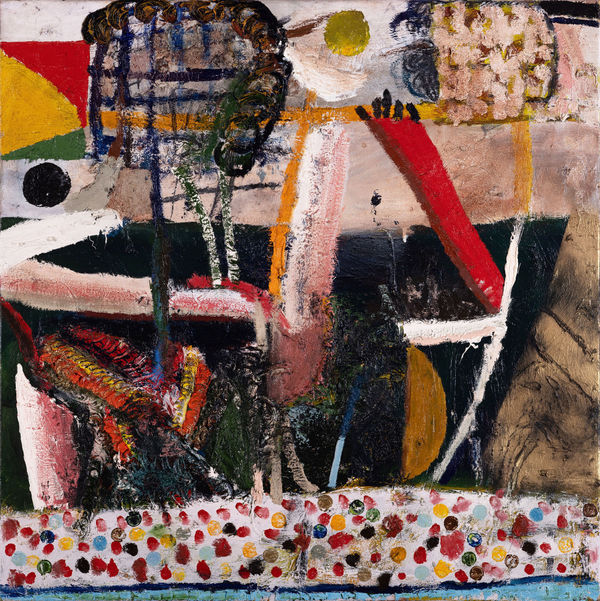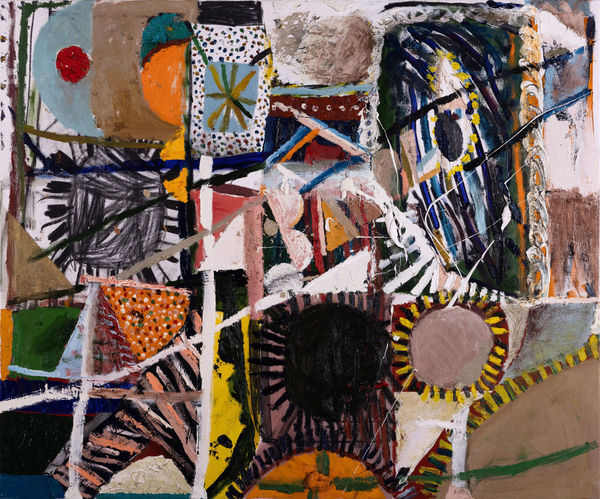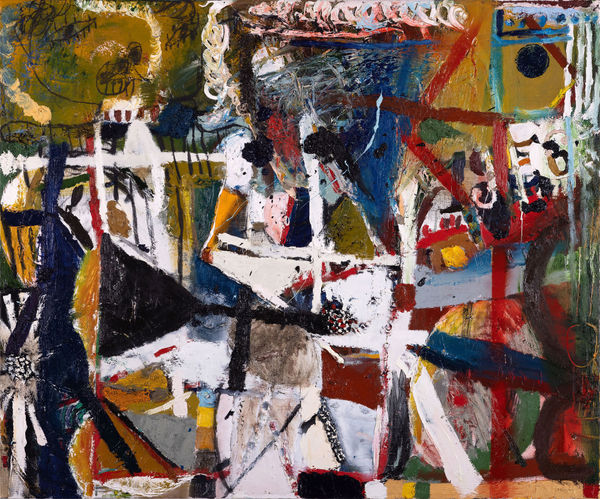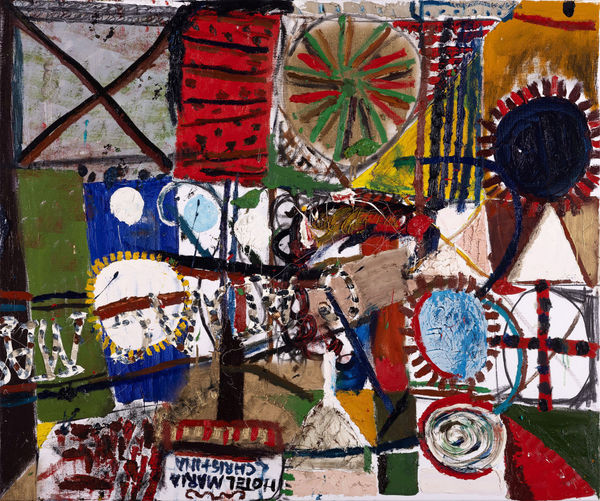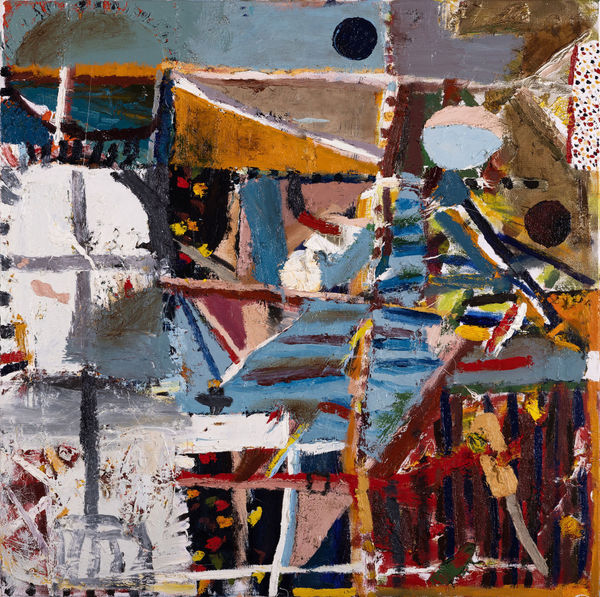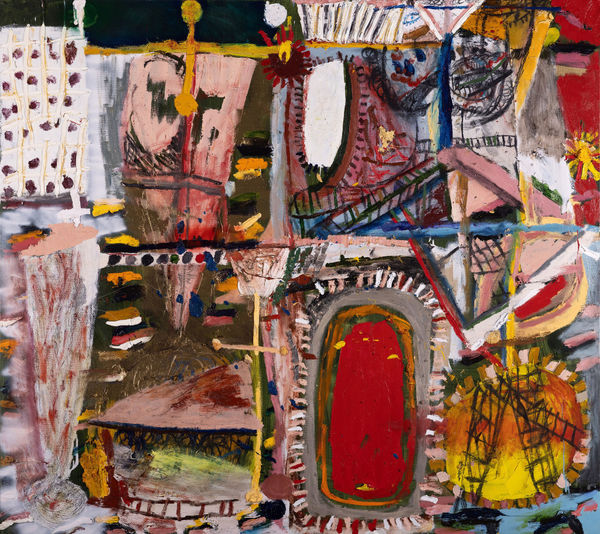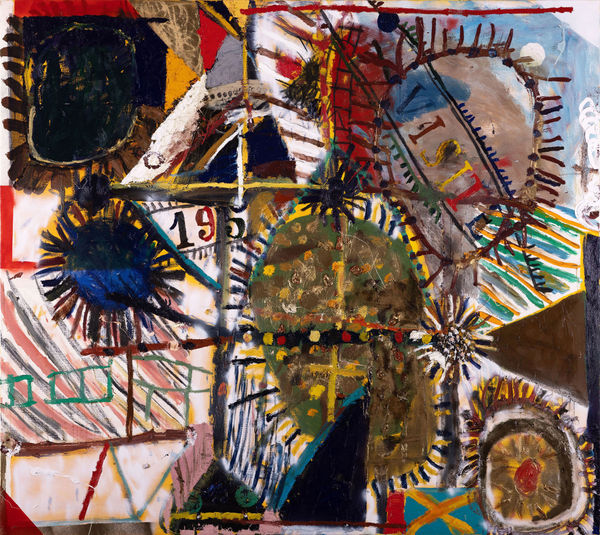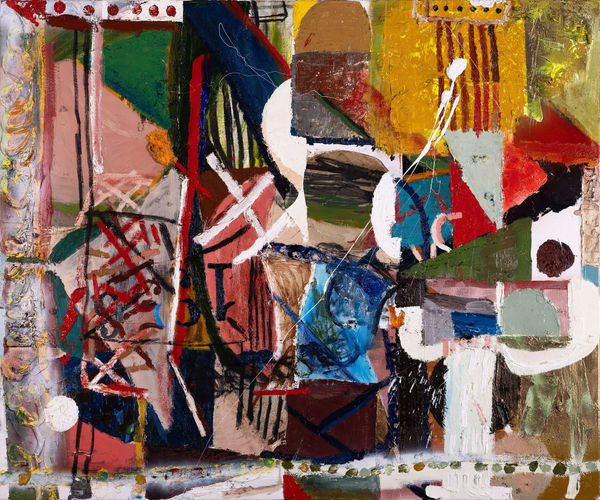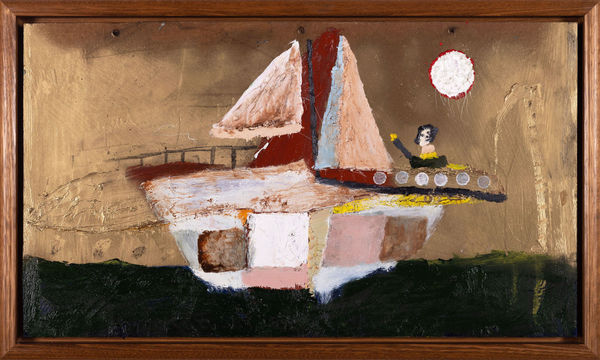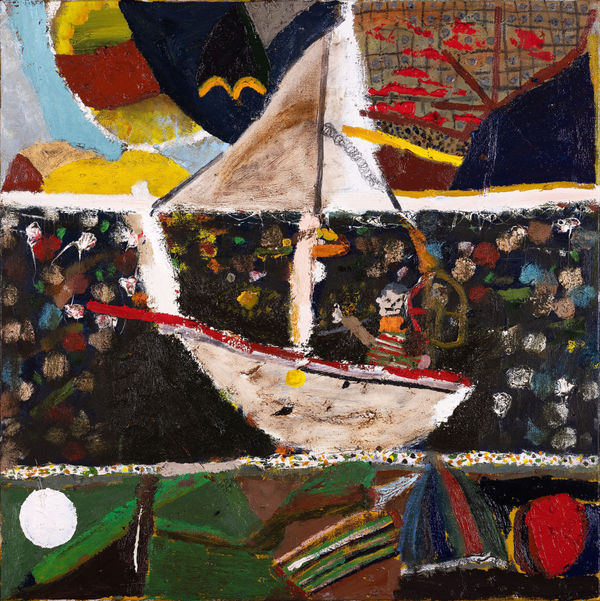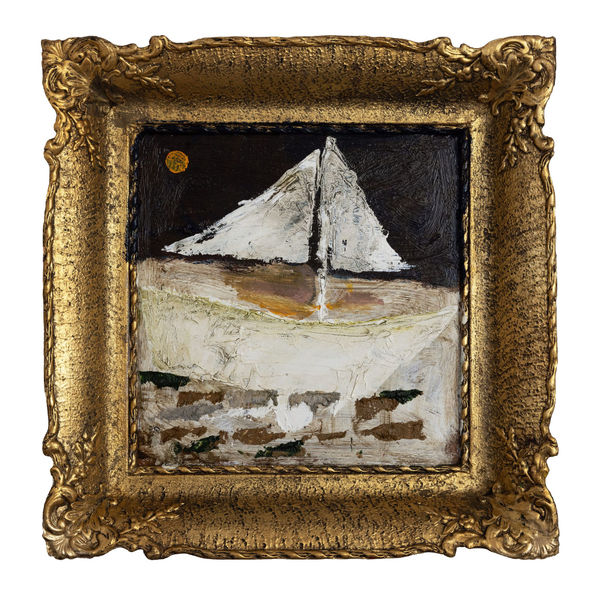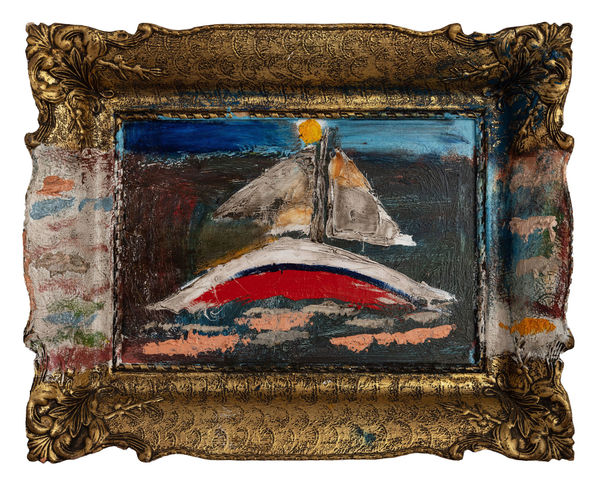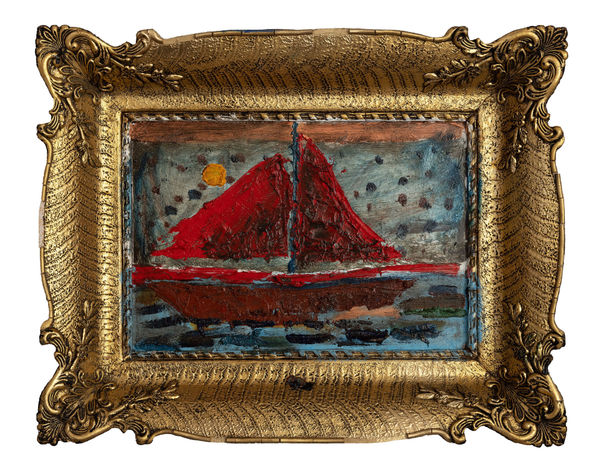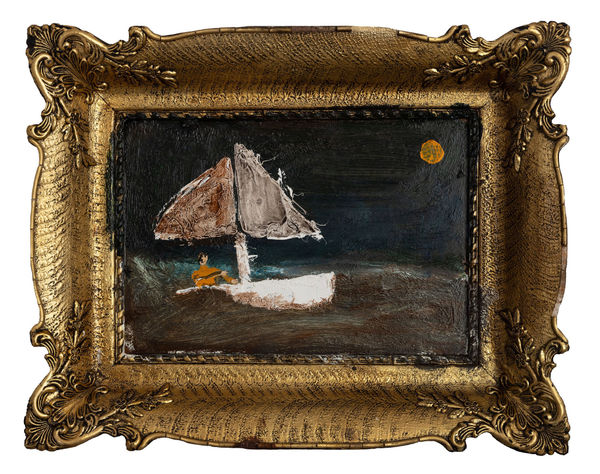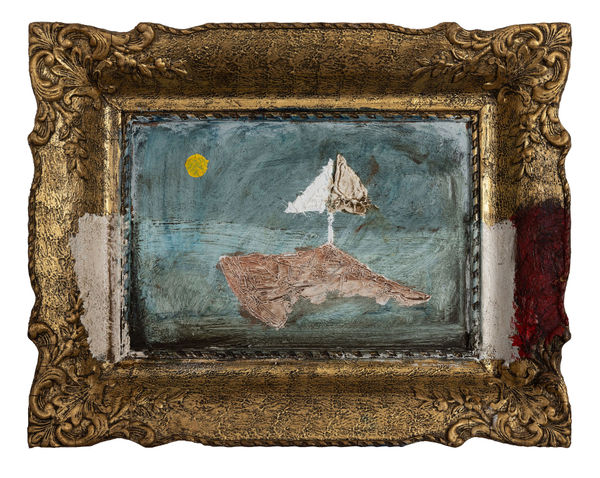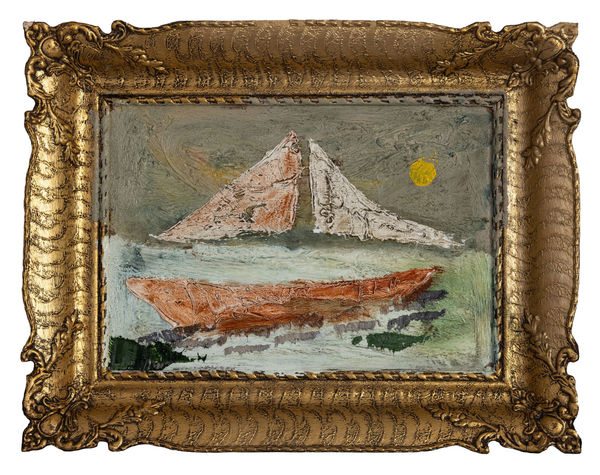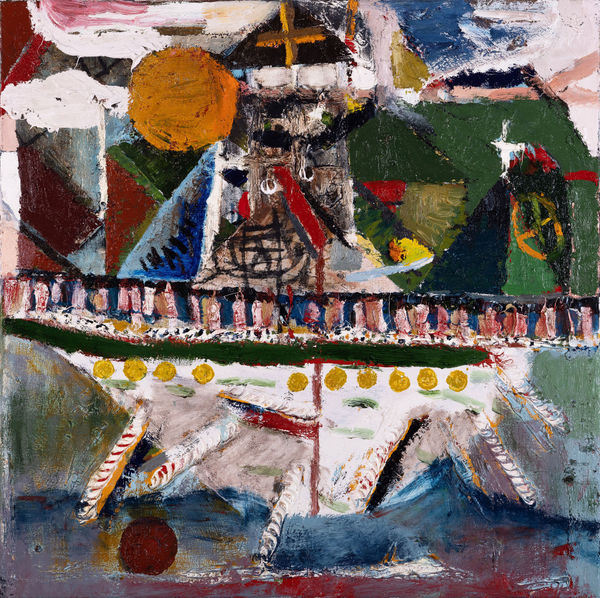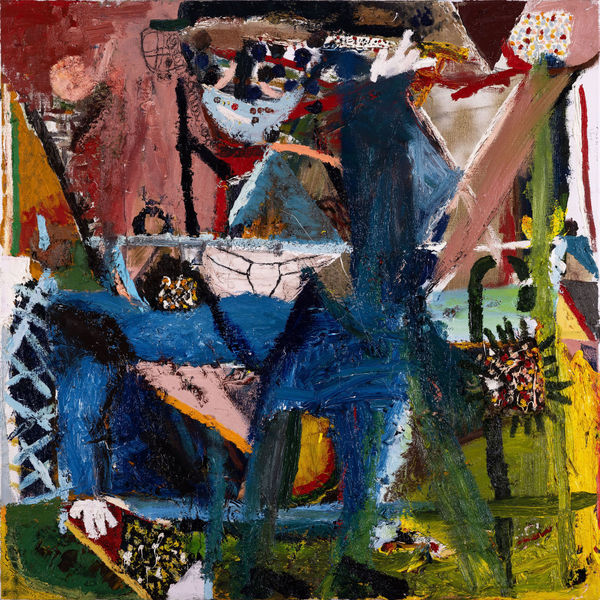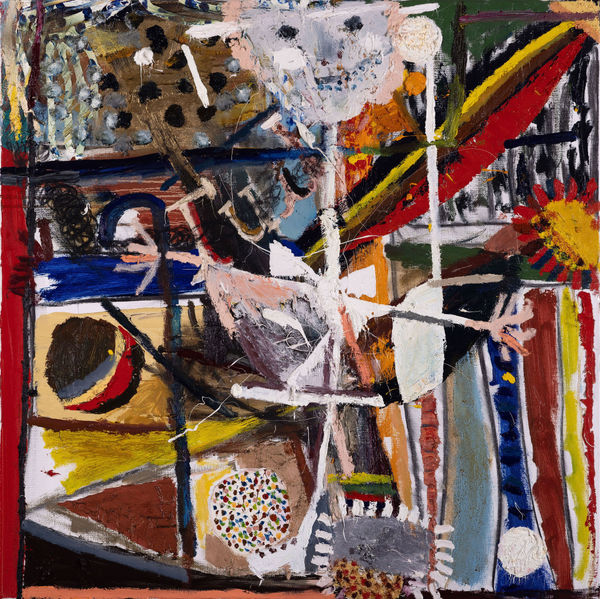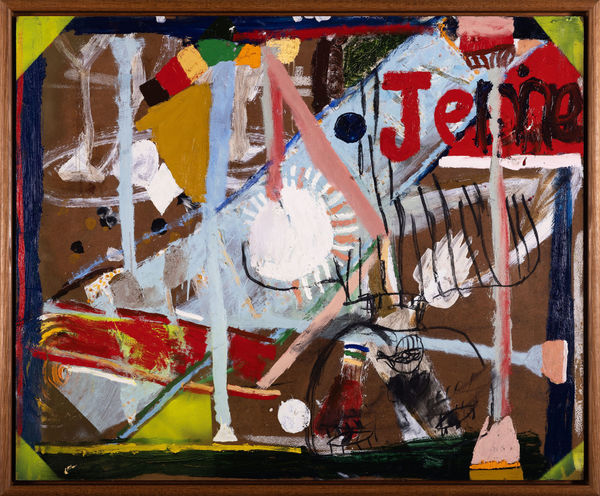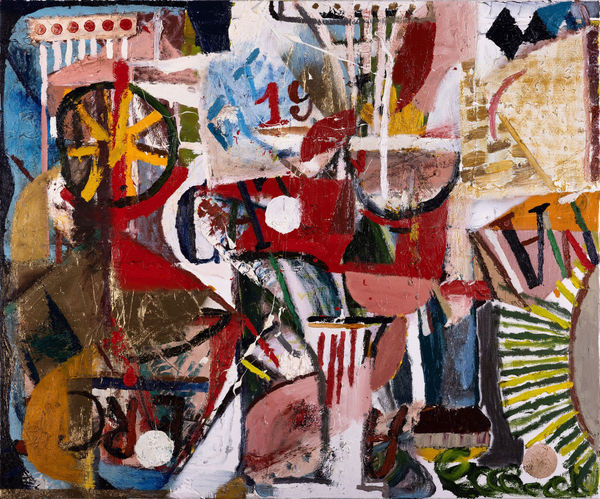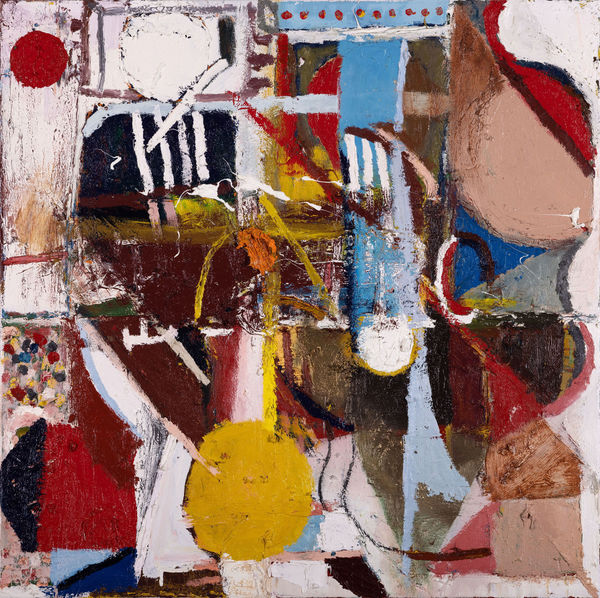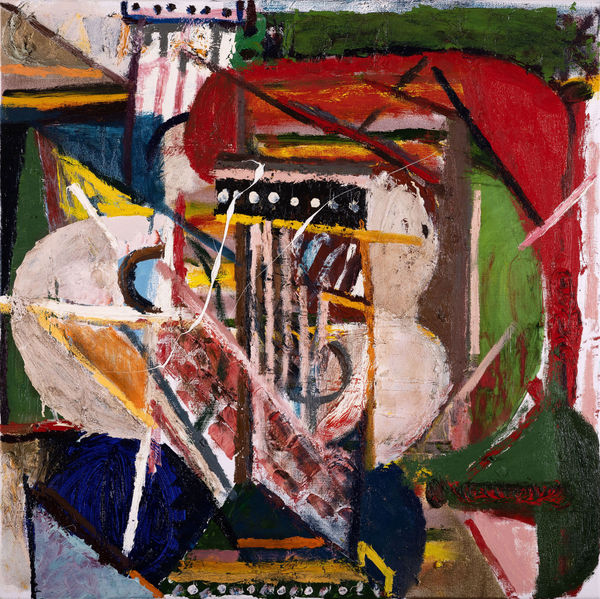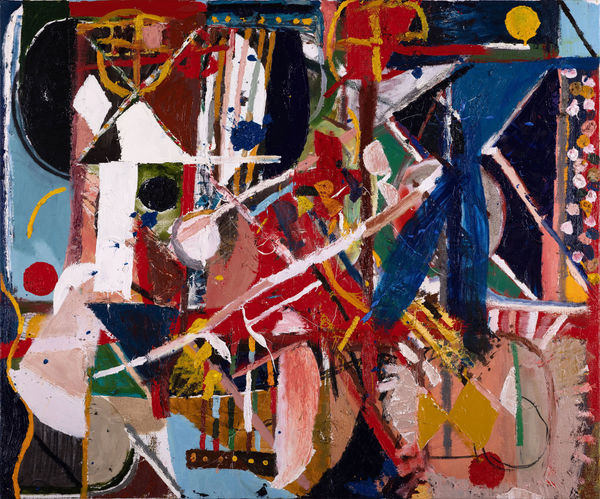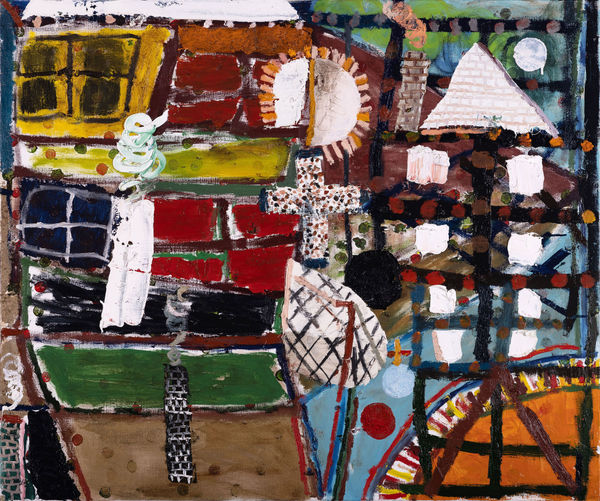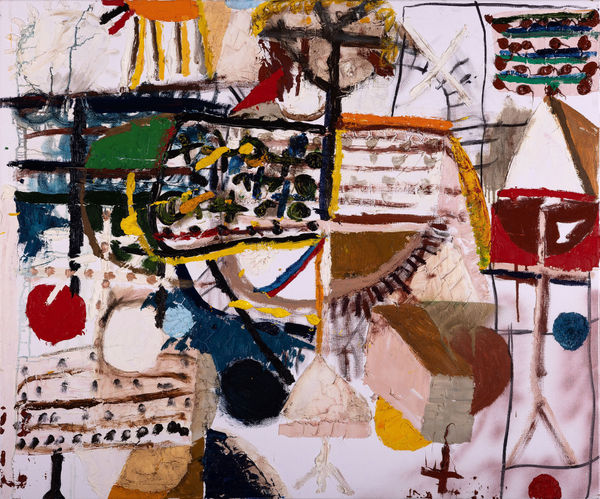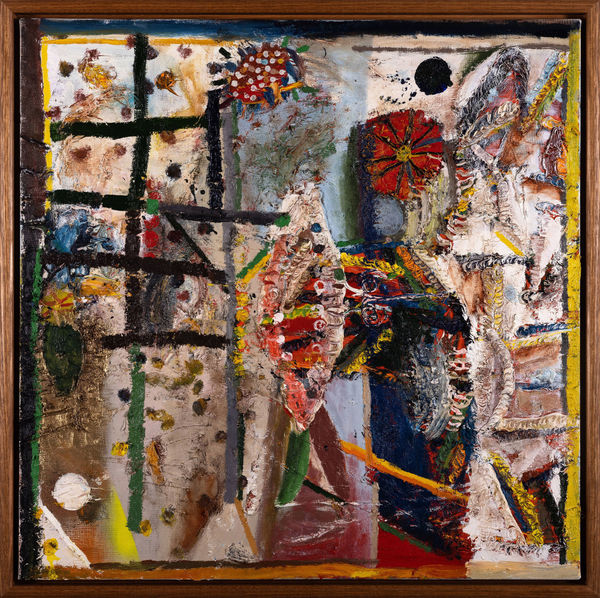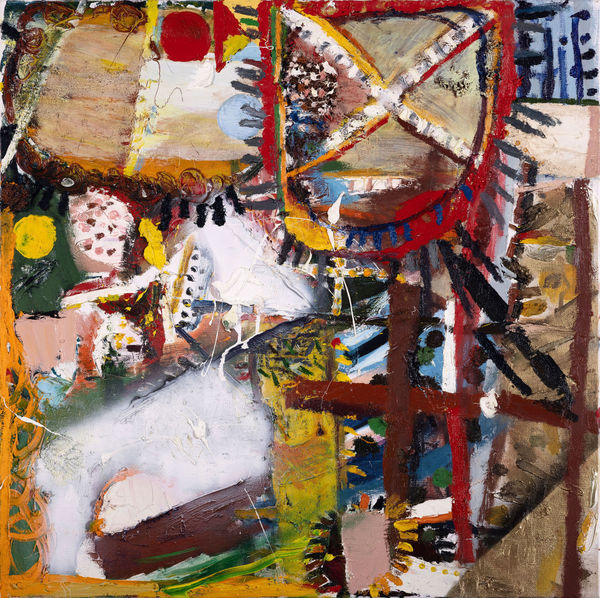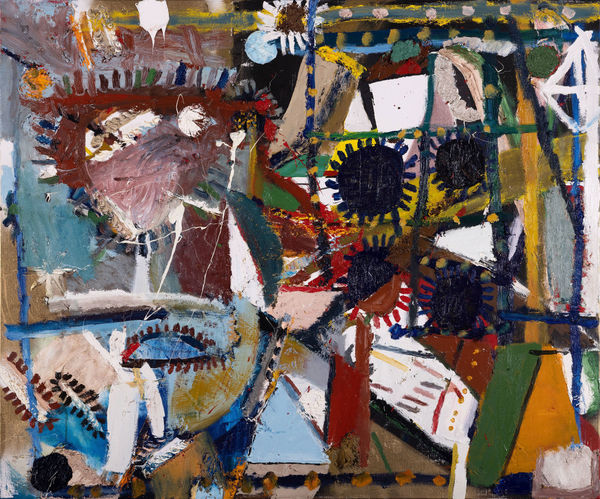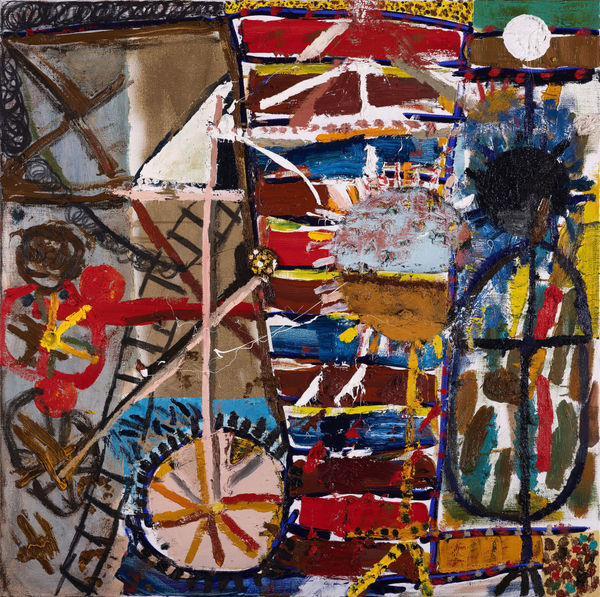École Des Arts: Just outside Toulouse: James Drinkwater
-
-
He pulls us into a world where paint is almost incidental, a vehicle for memory rather than a medium alone.
-
Anthea Mentzalis
November, 2024
James Drinkwater’s "ÉCOLE DES BEAUX ARTS: Just outside Toulouse" is a paean to the beauty and brevity of the everyday. These works, born from his recent residency in France, are suffused with an unfiltered intimacy, capturing the delicate resonance in the seemingly mundane. Almost folkloric, Drinkwater invites us to witness a mosaic of small moments, where the art of living and the art of painting are one and the same.
Drinkwater is a devotee to intimate spaces: kitchens filled with loved ones, studios shared in quiet harmony, tables set for gatherings; simple encounters that mark the passing of time. Life is recited at his table daily. Here, the boundaries between artist and family blur. The table becomes a springboard for domesticity. Domesticity, in turn, becomes ritual—a series of gestures repeated each morning and evening. He reminds us of the profundity inherent in these simple, daily rhythms. An unfolding lineage of small, shared pleasures.
For Drinkwater, this familial reciprocity serves as both practical and spiritual nourishment. It is an exchange that he is compelled to translate, where every plate and guest becomes a part of his archive, layered memories that he then carries into his studio. His process is infused with personal artefacts—the French homework of his children, the corner of a restaurant napkin, rendered in colour and form. His paintings hold the oddities he has collected—the remnants of lives lived and spaces inhabited. These fragments and mementos from his environment are more than just keepsakes. They are artefacts which shift into raw, tangible materials for his paintings—scraps of the everyday, softened and transformed by his touch, which form the architecture for each creation.
He pulls us into a world where paint is almost incidental, a vehicle for memory rather than a medium alone. Conversations and laughter are captured in the soft smudges left by meals shared on a stained tablecloth. Scraps from the streets, flotsam to most, are for him fragments of stories waiting to reassemble, revealing secrets of a city and its people. It is a dance of materials and ideas passing from hand to hand, studio to studio. Each canvas holds remnants of these exchanges: pigments from a fellow artist’s palette, fragments of fabric, serviettes, notes—a bricolage of materials echoing the communal life in Albi.
His reverence for these moments feel like a small prayer; a respite, perhaps, from the turbulence around us. By foregrounding ordinary life as a source of artistic meaning, Drinkwater creates a communal alchemy. His palette reflects the tonalities of his time spent in France—the warm, sunlit ochres of aged architecture, the deep blues of shadowed alleyways, the earthy hues of fresh bread shared at a morning market.
The joy is not only in seeing, but in participating; sensing how fleeting moments are rearranged into something enduring. He shows us that while life’s small pleasures may be humble, they hold an alchemical power: they make us feel, remember, and, ultimately, become part of something that outlives us.
In this philosophy, life is not merely a thing observed. It’s the soft morning light through the window in a beloved room, a mark scratched into the surface of an old wooden table, a familiar gesture exchanged between old friends. His approach turns quotidian details into paintings, capturing the peripheral joys of life—rituals that might otherwise slip away—which, in retrospect, become indispensable within his revisitations. Drinkwater raises the question: what is the nature of memory itself? In each carefully gathered scrap, in every stroke of colour, he resurrects fragments of past moments, as if coaxing out the very spirit that inhabits them.
Drinkwater’s frequent motif of the boat is a symbol of selfhood. It acts as an autobiographical anchor—a vessel carrying the artist’s burdens and blessings. “I am a boat. Without me, you are drowning. Without you, I am empty.” It is a symbol of resilience, of carrying and being carried, of weathering storms and floating in calm. It traverses a delicate line between duty and freedom. It is the role he feels as both an artist and a father.
A tablecloth is rich in traces that often go unnoticed—splashed, splattered and stained in a unique language. Drinkwater distils what goes unnoticed into something sacred. Memory is a repeated gesture—a ritual of living and observing. This exhibition is not merely an invitation to view his work, but to feel it, to experience the hum of shared life, the weight of family. It is a gentle offering; a reminder that, even amid life’s impermanence, there are moments worth holding on to, preserved in the layers of paint and memory.
-
Works
-

-

-
 James DrinkwaterChartier, 2024Oil on linen137 x 122cmSold
James DrinkwaterChartier, 2024Oil on linen137 x 122cmSold -

-
 James DrinkwaterDinner at Francois Pyrenees apartment, 2024Oil on linen100 x 120cmSold
James DrinkwaterDinner at Francois Pyrenees apartment, 2024Oil on linen100 x 120cmSold -

-
 James DrinkwaterCycling around Lucca, 2024Oil on linen91.5 x 91.5cmSold
James DrinkwaterCycling around Lucca, 2024Oil on linen91.5 x 91.5cmSold -
 James DrinkwaterFermier, 2024Oil on linen40.5 x 51cmSold
James DrinkwaterFermier, 2024Oil on linen40.5 x 51cmSold -
 James DrinkwaterFont Romeu 2, 2024Oil on linen160 x 180cmSold
James DrinkwaterFont Romeu 2, 2024Oil on linen160 x 180cmSold -
 James DrinkwaterFont Romeu 3, 2024Oil on linen160 x 180cmSold
James DrinkwaterFont Romeu 3, 2024Oil on linen160 x 180cmSold -
 James DrinkwaterGaillac Townsquare, 2024Oil on linen100 x 120cmSold
James DrinkwaterGaillac Townsquare, 2024Oil on linen100 x 120cmSold -
 James DrinkwaterI am a boat TCOML 1, 2024Oil on board with ornate frame49 x 86.5cmSold
James DrinkwaterI am a boat TCOML 1, 2024Oil on board with ornate frame49 x 86.5cmSold -
 James DrinkwaterI am a boat TCOML 2, 2024Oil on board with ornate frame67.5 x 77.7cmSold
James DrinkwaterI am a boat TCOML 2, 2024Oil on board with ornate frame67.5 x 77.7cmSold -
 James DrinkwaterI am a boat TCOML 10, 2024Oil on linen71 x 71cmSold
James DrinkwaterI am a boat TCOML 10, 2024Oil on linen71 x 71cmSold -
 James DrinkwaterI am a boat TCOML 3, 2024Oil on board with ornate frame48 x 48cmSold
James DrinkwaterI am a boat TCOML 3, 2024Oil on board with ornate frame48 x 48cmSold -
 James DrinkwaterI am a boat TCOML 4, 2024Oil on board with ornate frame39.5 x 49.5cmSold
James DrinkwaterI am a boat TCOML 4, 2024Oil on board with ornate frame39.5 x 49.5cmSold -
 James DrinkwaterI am a boat TCOML 5, 2024Oil on board with ornate frame38.5 x 48.5cmSold
James DrinkwaterI am a boat TCOML 5, 2024Oil on board with ornate frame38.5 x 48.5cmSold -
 James DrinkwaterI am a boat TCOML 6, 2024Oil on board with ornate frame38 x 49.5cmSold
James DrinkwaterI am a boat TCOML 6, 2024Oil on board with ornate frame38 x 49.5cmSold -
 James DrinkwaterI am a boat TCOML 7, 2024Oil on board with ornate frame39.5 x 50cmSold
James DrinkwaterI am a boat TCOML 7, 2024Oil on board with ornate frame39.5 x 50cmSold -
 James DrinkwaterI am a boat TCOML 8, 2024Oil on board with ornate frame35 x 44.5cmSold
James DrinkwaterI am a boat TCOML 8, 2024Oil on board with ornate frame35 x 44.5cmSold -
 James DrinkwaterI am a boat TCOML 9, 2024Oil on board with ornate frame71 x 71cmSold
James DrinkwaterI am a boat TCOML 9, 2024Oil on board with ornate frame71 x 71cmSold -
 James DrinkwaterIn a hat shop 1, 2024Oil on linen91.5 x 91.5cmSold
James DrinkwaterIn a hat shop 1, 2024Oil on linen91.5 x 91.5cmSold -
 James DrinkwaterIn a hat shop 2, 2024Oil on linen91.5 x 91.5cmSold
James DrinkwaterIn a hat shop 2, 2024Oil on linen91.5 x 91.5cmSold -
 James DrinkwaterInto Toulouse, 2024Oil on linen100 x 120cmSold
James DrinkwaterInto Toulouse, 2024Oil on linen100 x 120cmSold -

-
 James DrinkwaterLautrec, 2024Oil on linen91.5 x 91.5cmSold
James DrinkwaterLautrec, 2024Oil on linen91.5 x 91.5cmSold -
 James DrinkwaterLautrec 2, 2024Oil on linen91.5 x 91.5cmSold
James DrinkwaterLautrec 2, 2024Oil on linen91.5 x 91.5cmSold -

-
 James DrinkwaterLes chats des garcons, 2024Oil on linen100 x 120cmSold
James DrinkwaterLes chats des garcons, 2024Oil on linen100 x 120cmSold -
 James DrinkwaterMorning Rush Le Marais, 2024Oil on linen100 x 120cmSold
James DrinkwaterMorning Rush Le Marais, 2024Oil on linen100 x 120cmSold -
 James DrinkwaterParisien commuter reading a newspaper, 2024Oil on linen100 x 120cmSold
James DrinkwaterParisien commuter reading a newspaper, 2024Oil on linen100 x 120cmSold -
 James DrinkwaterRestaurant Interior Albi 1, 2024Oil on linen71 x 71cmSold
James DrinkwaterRestaurant Interior Albi 1, 2024Oil on linen71 x 71cmSold -

-
 James DrinkwaterRestaurant Interior Albi 3, 2024Oil on linen71 x 71cmSold
James DrinkwaterRestaurant Interior Albi 3, 2024Oil on linen71 x 71cmSold -
 James DrinkwaterRestaurant Interior Albi 4, 2024Oil on linen71 x 71cmSold
James DrinkwaterRestaurant Interior Albi 4, 2024Oil on linen71 x 71cmSold -
 James DrinkwaterRestaurant Interior Albi 5, 2024Oil on linen71 x 71cmSold
James DrinkwaterRestaurant Interior Albi 5, 2024Oil on linen71 x 71cmSold -
 James DrinkwaterRestaurant 3rd Arrondissement, 2024Oil on linen100 x 120cmSold
James DrinkwaterRestaurant 3rd Arrondissement, 2024Oil on linen100 x 120cmSold -

-
 James DrinkwaterThe drive to Rodez, 2024Oil on linen101 x 120cmSold
James DrinkwaterThe drive to Rodez, 2024Oil on linen101 x 120cmSold -
 James DrinkwaterWe kick hard off the ocean floor, 2024Oil on linen107 x 107cmSold
James DrinkwaterWe kick hard off the ocean floor, 2024Oil on linen107 x 107cmSold -
 James DrinkwaterYou always see shooting stars, 2024Oil on linen91.5 x 91.5cmSold
James DrinkwaterYou always see shooting stars, 2024Oil on linen91.5 x 91.5cmSold -
 James DrinkwaterÉcole à Gaillac, 2024Oil on linen100 x 120cmSold
James DrinkwaterÉcole à Gaillac, 2024Oil on linen100 x 120cmSold -

-


